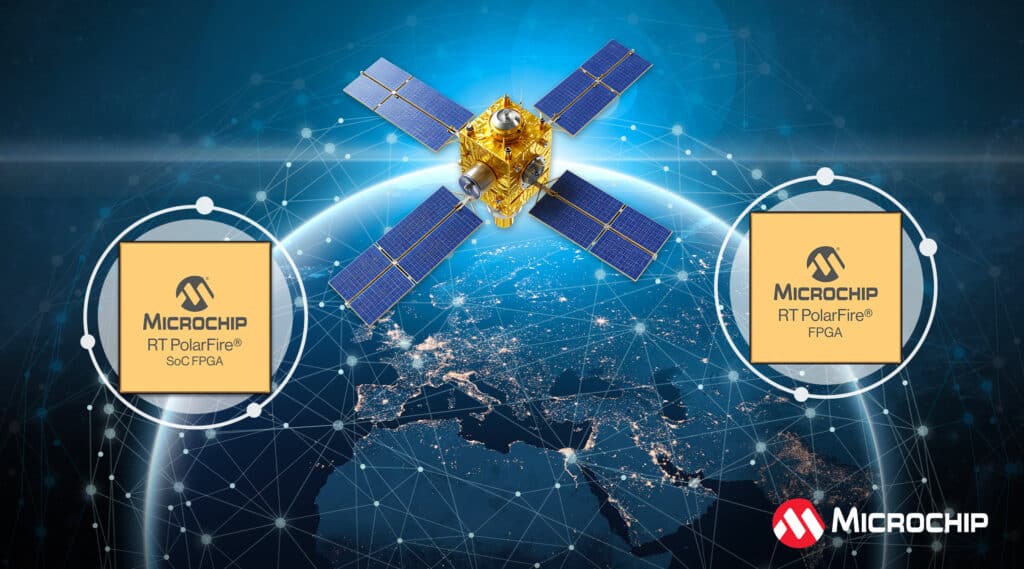New RT PolarFire FPGA and SoC samples meet military-grade standards while delivering low power, high reliability, and in-flight reprogrammability for satellite and avionics applications.

Microchip has expanded its radiation-tolerant FPGA lineup with two key developments: the RT PolarFire RTPF500ZT FPGA has achieved MIL-STD-883 Class B and QML Class Q qualification, and engineering samples of the RT PolarFire SoC FPGA are now available. They meets stringent testing standards set by the U.S. Department of Defense and the Defense Logistics Agency. These include rigorous electrical, mechanical, and environmental tests that ensure performance under extreme space conditions.
The key features are:
- High Density & Performance
- Low Power
- Radiation Tolerance: 100 Krad TID with No configuration upsets
- SEL >60 MeV·cm²/mg (@1.8V I/O)
- <10⁻¹⁰ errors/bit-day (GEO, solar min)
- Built-in PME decoupling caps
Unlike conventional SRAM-based FPGAs, RT PolarFire devices are built on nonvolatile technology. This eliminates the risk of configuration memory upsets from radiation, removing the need for external mitigation circuitry. The result? Simplified system design and reduced cost.With up to 50% lower power consumption compared to mid-range SRAM-based FPGAs, these devices allow space engineers to optimize SWaP (Size, Weight, and Power)—critical factors in satellite design. This variant enhances radiation protection with improved Single Event Latch-up (SEL) tolerance and offers robust support for in-flight reprogramming.
The RT PolarFire SoC FPGA integrates a real-time, Linux-capable RISC-V microprocessor subsystem with flight-proven FPGA fabric—enabling both deterministic control and flexible software deployment. With a roadmap targeting QML Class V and Class Y qualifications, the SoC is ideal for high-reliability roles in satellite control, avionics systems, and space payload management. Engineers benefit from its comprehensive design support via the Libero SoC Design Suite, solution stacks, reference designs, and integration with the Mi-V RISC-V ecosystem. Development kits and validation platforms accelerate prototyping and system deployment.
For more information, click here.








